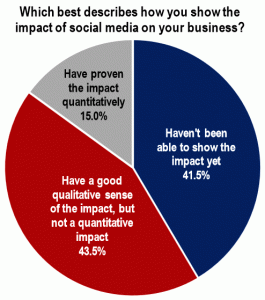If there’s an elephant in the room of the ‘Shop Local’ movement it’s this: If three quarters of U.S. consumers are aware of events like the upcoming Small Business Saturday, why aren’t small businesses blowing larger competitors out of the water?
Small business owners everywhere are gearing up for Small Business Saturday, a day they’re hoping will provide a holiday season revenue boost. But with an increasing number of holiday shoppers planning to spend a majority of their holiday shopping budget online, Main Street businesses may end up feeling like they’re the ones being left out in the cold, instead.
But not for lack of trying.
Official and unofficial efforts to educate local consumers about the positive impact that small businesses have on the local community have not gone unnoted. In fact, a recent UPS Store® Small Business Survey found that 94 percent of consumers say that patronizing local small businesses in their community is important, and nine out of ten say that small businesses are important to the U.S. economy.
Given the level of awareness among consumers and a willingness expressed by 41 percent of those surveyed to spend more in order to give their business to Main Street retailers rather than their larger corporate-owned competitors, the state of small business heading into the holiday season should be better than ever. However, the high level of awareness may not translate into Small Business Saturday and seasonal sales, especially for consumers who already feel like they’ve “done their part” by shopping at small businesses in the past.
Altruism will only take the ‘Shop Local’ movement so far; consumers need to know what’s in it for them. Renewed calls to ‘Shop Local’ may fall on deaf ears during the upcoming holiday season, especially if small businesses fail to provide new incentives or rationale that motivates consumers to shop small.
I’m not Deaf, I’m Ignoring You: 4 Reasons Why Consumers May Ignore Small Businesses this Holiday Season:
1. Consumers may not be able to hear the call to ‘Shop Local’ on Small Business Saturday at all.
More and more consumers are doing their holiday browsing and buying online. They are voting for eCommerce and online marketing with mouse clicks and keystrokes. Despite the exponential rise of online holiday shopping over the past three years (retail in-store traffic in November-December 2013 was half of what it was in 2010), some studies report that more than half of all small businesses in the U.S. still don’t have websites.Small businesses must get better at competing for the holiday shopper’s attention online. Absent a digital marketing strategy that will put their holiday wares in the paths of local consumers who are researching holiday gift ideas online, their ‘Shop Local’ education and appeals can’t even be heard.
2. Consumers will ignore appeals to patronize local businesses on Small Business Saturday if they fail to deliver holiday appeal.
Local retailers can’t expect holiday shoppers to intuitively surmise that their wares would make great gifts, or would even be suitable for the people on their holiday shopping lists. Local consumers assume that most businesses – including small businesses – sell gift cards, but many small business owners promote their gift cards as though they believe local consumers aren’t aware that they sell them.From gift cards to gift wares, small business owners need to do a better job of connecting the dots for their customers so that they know the gifts that are perfect for the people on their holiday shopping lists. Consumers might know that your small business has gift cards; however, that doesn’t mean that they realize that your gift cards would be an ideal gift for the coaches, teachers, co-workers, and other hard-to-please people on their shopping lists.
3. Once bitten; twice shy. Consumers who are disappointed with a small business shopping experience aren’t likely to respond to the same old cry.
The messages of many ‘Shop Local’ movements range from an appeal to the local resident’s sense of community responsibility to campaigns that border on exploiting a sense of guilt. Given the motivation that brings local customers into a small business for the purposes of shopping small, it’s up to the merchant to create the emotional payoff needed to turn a one-time altruistic holiday shopper into a repeat customer and small business brand enthusiast.Can you do something to make the holiday shopping experience at your small business better? If you can provide a “feel better” experience by enhancing the customer’s experience in some way during (or even after) the sale, you will be providing the local holiday shopper who came to you out of a sense of community responsibility with an answer to the question of, “What’s in it for me?”
4. ‘Tis the season for bright, shiny new toys. Consumers who view shop local marketing as same-old-same-old are likely to pass small businesses by.
Local retailers can’t expect consumers to spend their holiday shopping dollars on items they feel like they can buy anytime during the year. Like big retail, small business owners need to shift gears during the holiday season. They need to amp up the holiday atmosphere in-store and add new, unique, desirable gift options to their inventory that can only be purchased during the holiday season.We’re talking human nature here. Our brains are wired to ignore things we think we have seen before. Conversely, we are also apt to notice what is new. Small business owners need to get better at changing things up during the holidays if they want to give local shoppers a compelling reason to come back and find out what they have to offer. From your store’s ambiance to holiday-themed events, demonstrations or entertainment, it’s possible to turn your small business into a must-see, must-share holiday destination for local shoppers.
Business & Finance Articles on Business 2 Community
(319)





